ichard Carlbom was wide awake at 2 a.m., just minutes after learning Minnesota had voted down a constitutional ban on same-sex marriage, when he got a phone call from a national news outlet.
The reporter wanted to know if legalizing gay marriage was next.
Carlbom, who led the anti-amendment campaign Minnesotans United for All Families, had spent all year ignoring allegations from gay marriage opponents that legalization would immediately follow if the amendment was defeated. Democrats also unexpectedly took control of state government on election night. Suddenly, legalizing same-sex marriage was a real possibility.
"Minnesota is in the midst of a conversation about why marriage matters," Carlbom told the reporter. "We expect that conversation to continue."
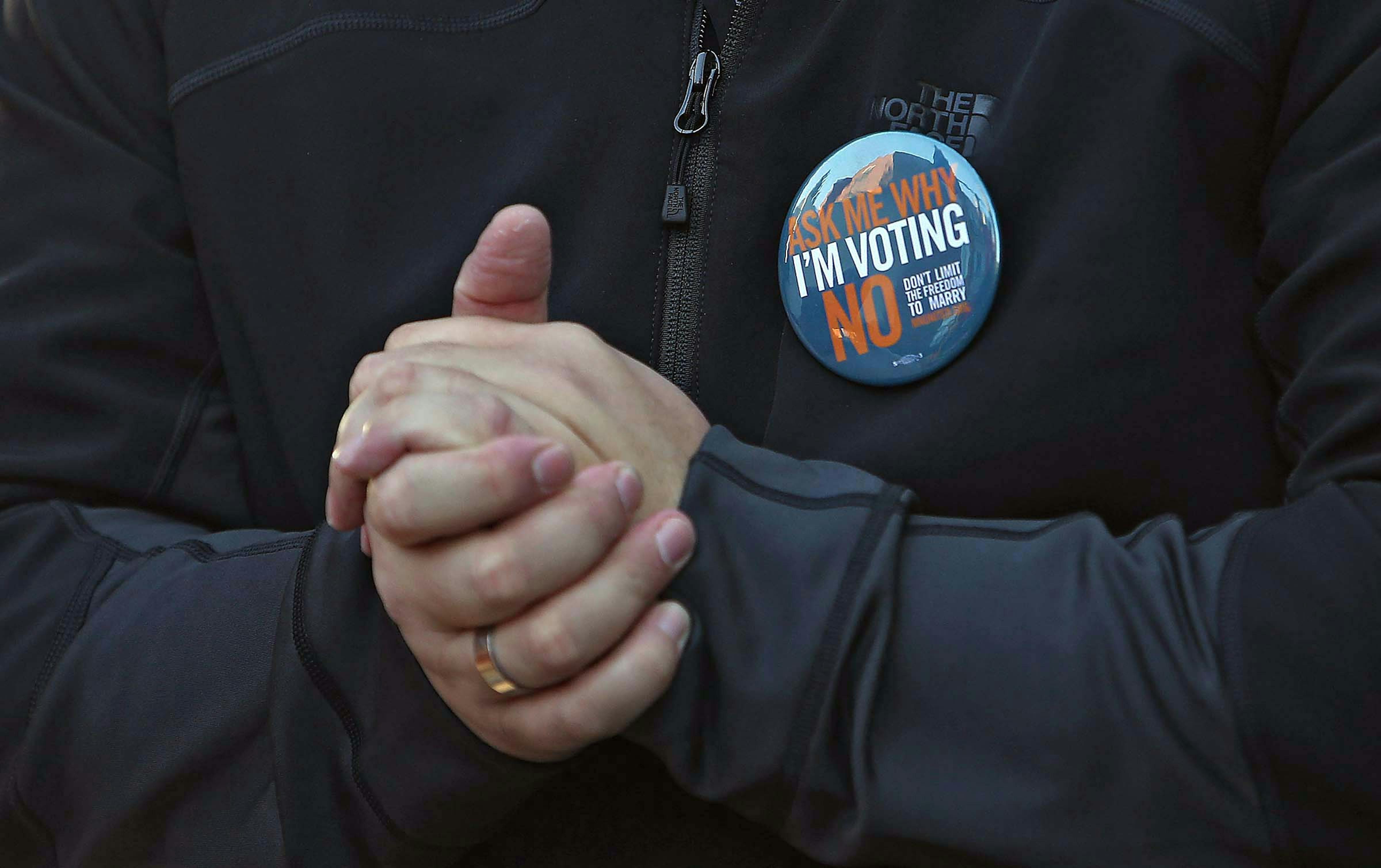
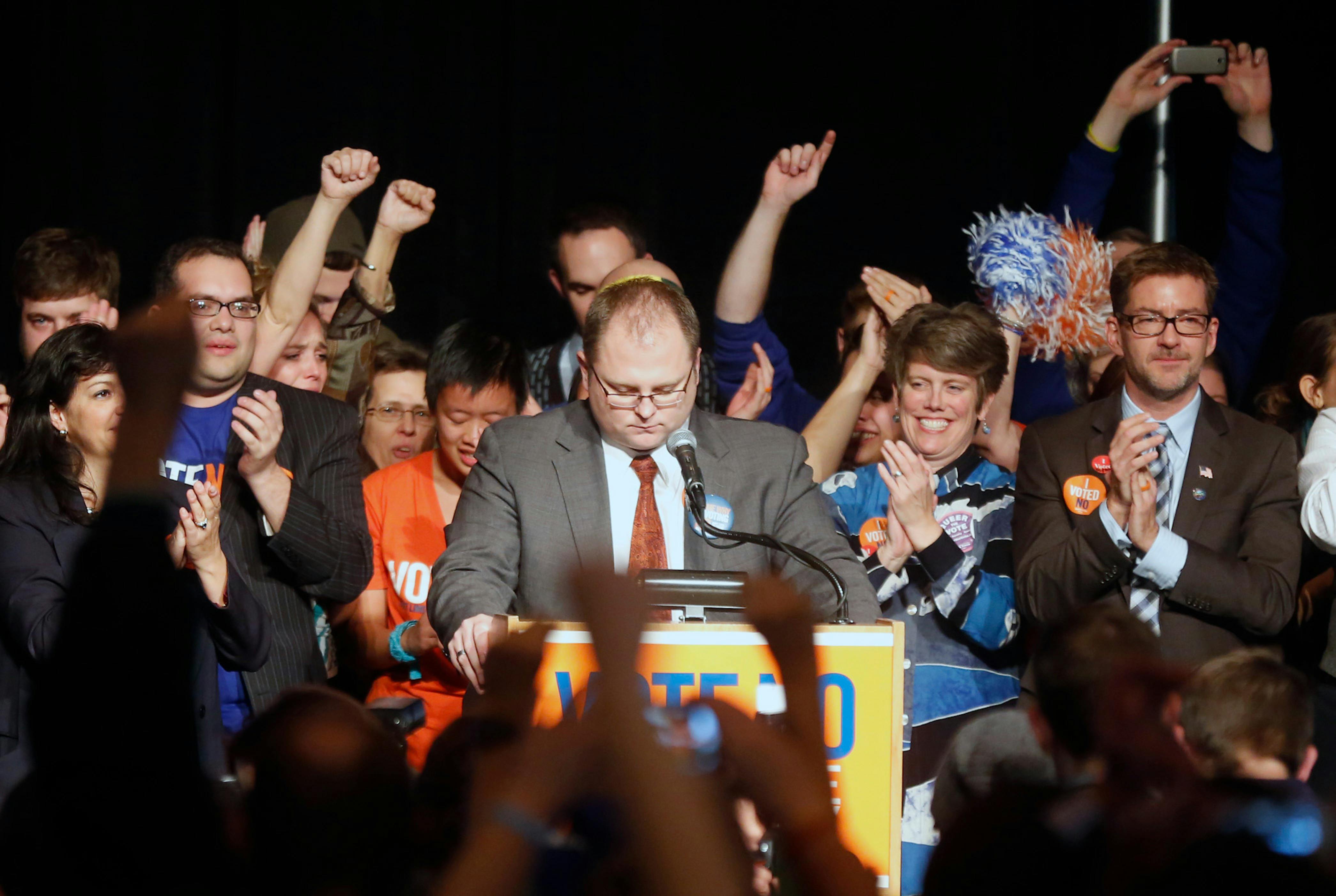
What followed was a six-month campaign to make Minnesota the 12th state to legalize same-sex marriages, an effort that culminated on May 14, 2013, in a bill-signing ceremony on the Capitol steps.
One decade later, the legacy of the push to legalize gay marriage can be seen in the more than 10,000 married same-sex couples living in Minnesota. Public support has grown dramatically, and a new generation of state leaders emerged from that effort.
"The people who were at the table then are still the people who are moving things now," said Lt. Gov. Peggy Flanagan, who was an organizer on the marriage equality campaign before she ran for state office. "We stuck with it."
But 10 years ago, legalizing same-sex marriage was far from a certainty. The constitutional ban was narrowly defeated in Minnesota after both sides spent millions of dollars and nearly two years campaigning across the state. Even some supporters of same-sex marriage worried it was too much too soon.
Sen. Scott Dibble, DFL-Minneapolis, the only openly gay member of the state Senate at the time, didn't think he would see legal same-sex marriage in Minnesota in his lifetime. But gearing up to defeat the amendment had just set the foundation.
"We have to pass it," he said. "Or we will have failed."
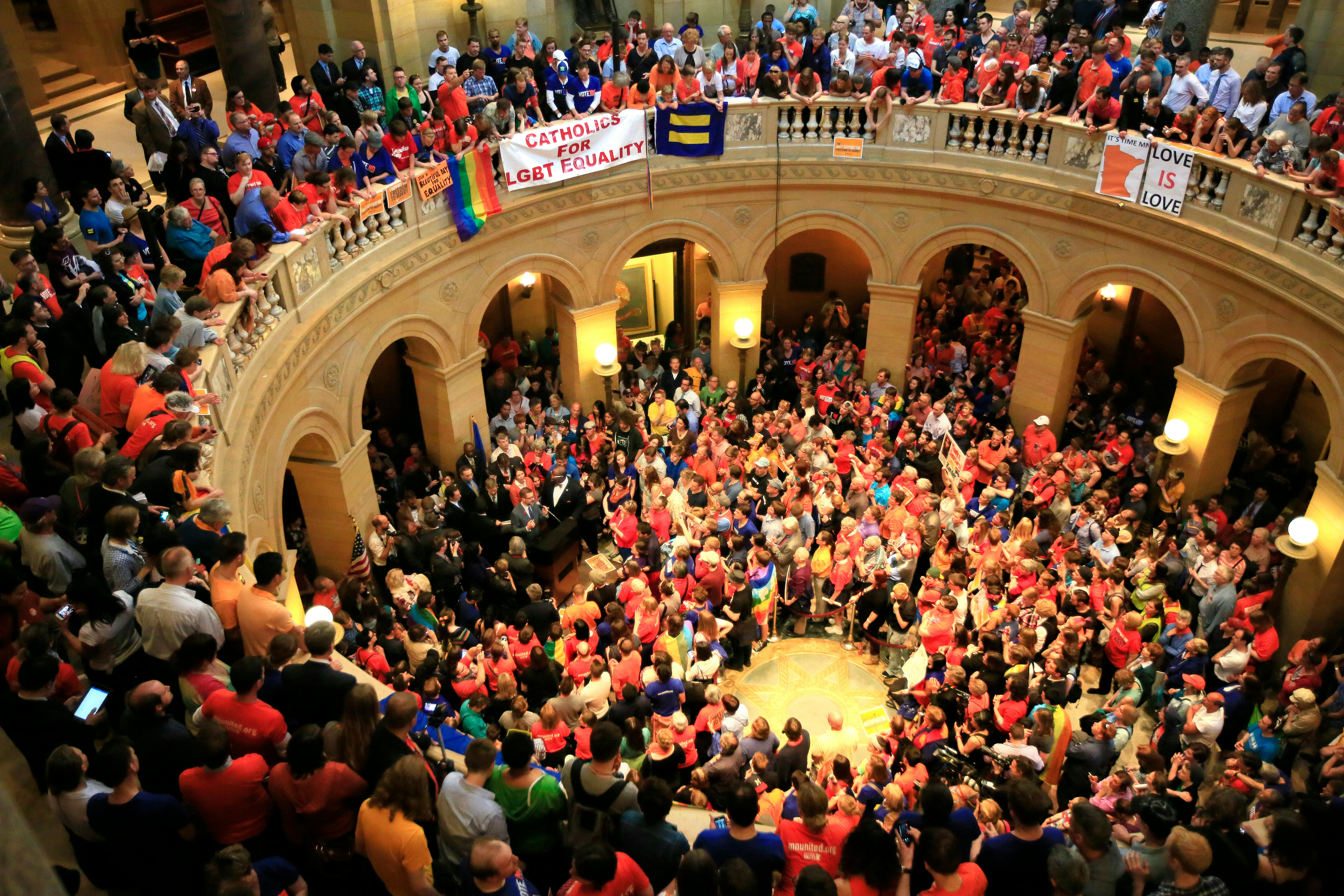
A shift in strategy
Instead of trying to have conversations with millions of Minnesotans, the campaign shifted its staff and volunteer efforts to just a handful of legislative districts in the state. Democrats controlled the House and Senate, but some rural members of the party were likely to vote no.
Carlbom said they intentionally waited a few weeks to roll out their bill so Democrats could work on the budget, but the coalition got an early prime-time boost when DFL Gov. Mark Dayton unexpectedly brought it up in his State of the State address.
"Let me mention one other cause, which is controversial, but consistent with my faith and my principles," Dayton said on Feb. 7 in front of a joint session of the House and Senate.
"I want Minnesota to be a state which affirms that freedom for one means freedom for everyone, and where no one is told it is illegal to marry the person you love."
Families join the fight
By 2013, Paul Melchert and James Patrick Zimmerman of Dellwood already had a civil commitment ceremony and were raising 4-year-old twins, Gabriel and Emmett. Melchert, a pediatrician, had been involved in the campaign to defeat the ballot amendment.
The entire family of four stepped into the spotlight at a Capitol news conference on Feb. 27. Holding their two boys, the couple urged the Legislature to extend marriage benefits to their union.
As Melchert spoke, Emmett, in a white dress shirt and navy sweater vest, put his hand on the microphone and tried to bat it away. Melchert good-naturedly admonished him and continued, saying children of same-sex couples "fare equally well in all areas of emotional, psychosocial and behavioral adjustment as opposite-gender parents."
Melchert set Emmett down for a second and when he picked him back up, the boy held a toy car in his hand that he silently rolled up and over his father's head and down his face.
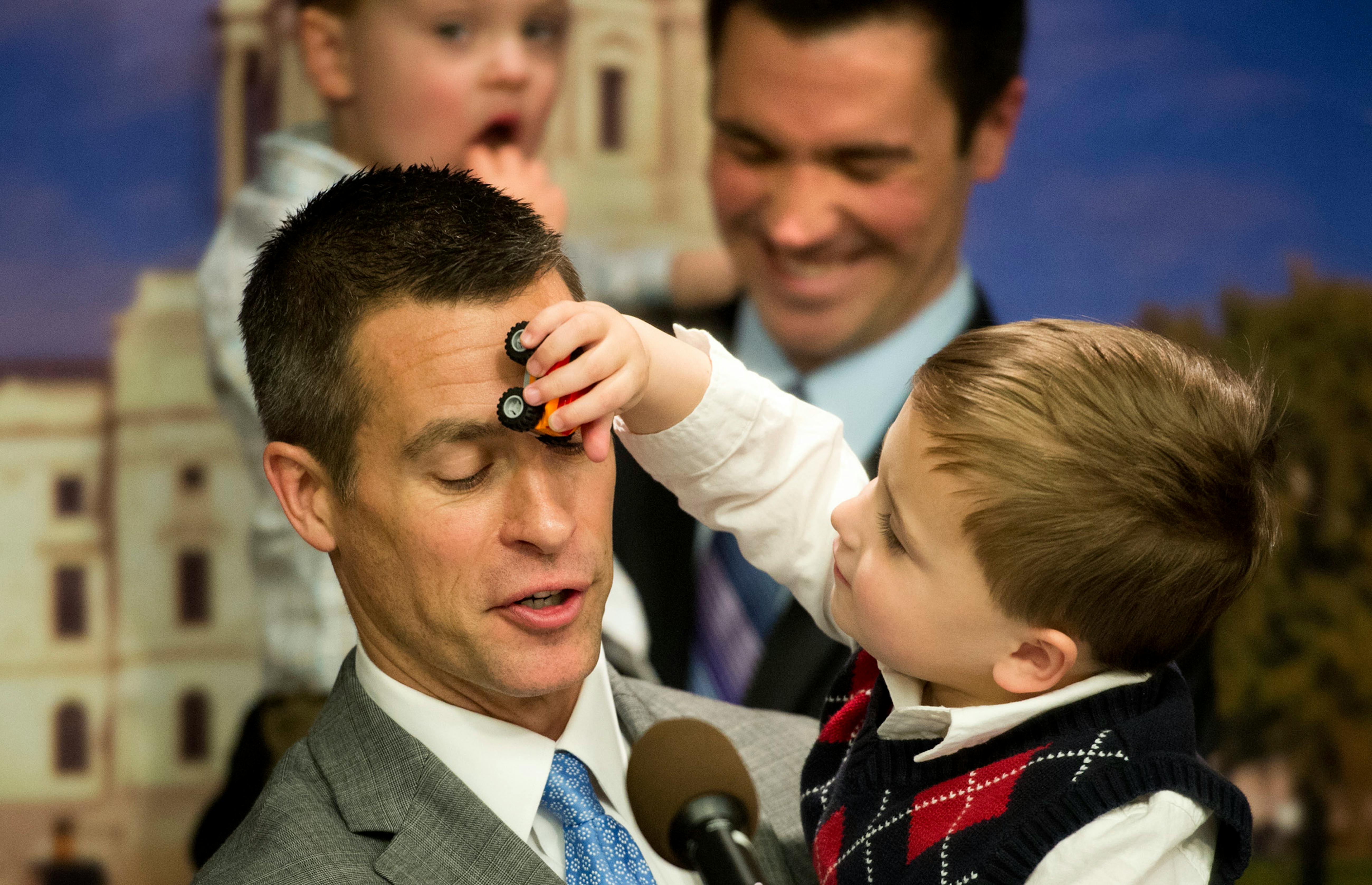
"Security obviously comes from love and commitment, not from sexual orientation," Melchert continued with a mostly serious expression.
He was mortified at the time, in part because the boys were usually well-behaved and did not arrive with toys. "I have no idea where that car came from," Melchert said.
The pediatrician apologized to Dibble for the distraction, but the senator reassured him they were a hit. Video of the news conference spread widely and is still available on YouTube as "Cute kids upstage gay marriage news conference."
Courting GOP support
In April, a group of mostly Republicans in the Minnesota House offered an alternative to legalizing same-sex marriages: allow gay couples to enter into civil unions. The idea was panned by supporters of the legalization effort, but it was the first sign of movement from House Republicans.
The campaign to legalize same-sex marriages had been lobbying conservative legislators for months. GOP Rep. Pat Garofalo attended the news conference and was privately wrestling with how he planned to vote. He knew this was the direction the country was heading, but he wanted protections for religious freedoms.
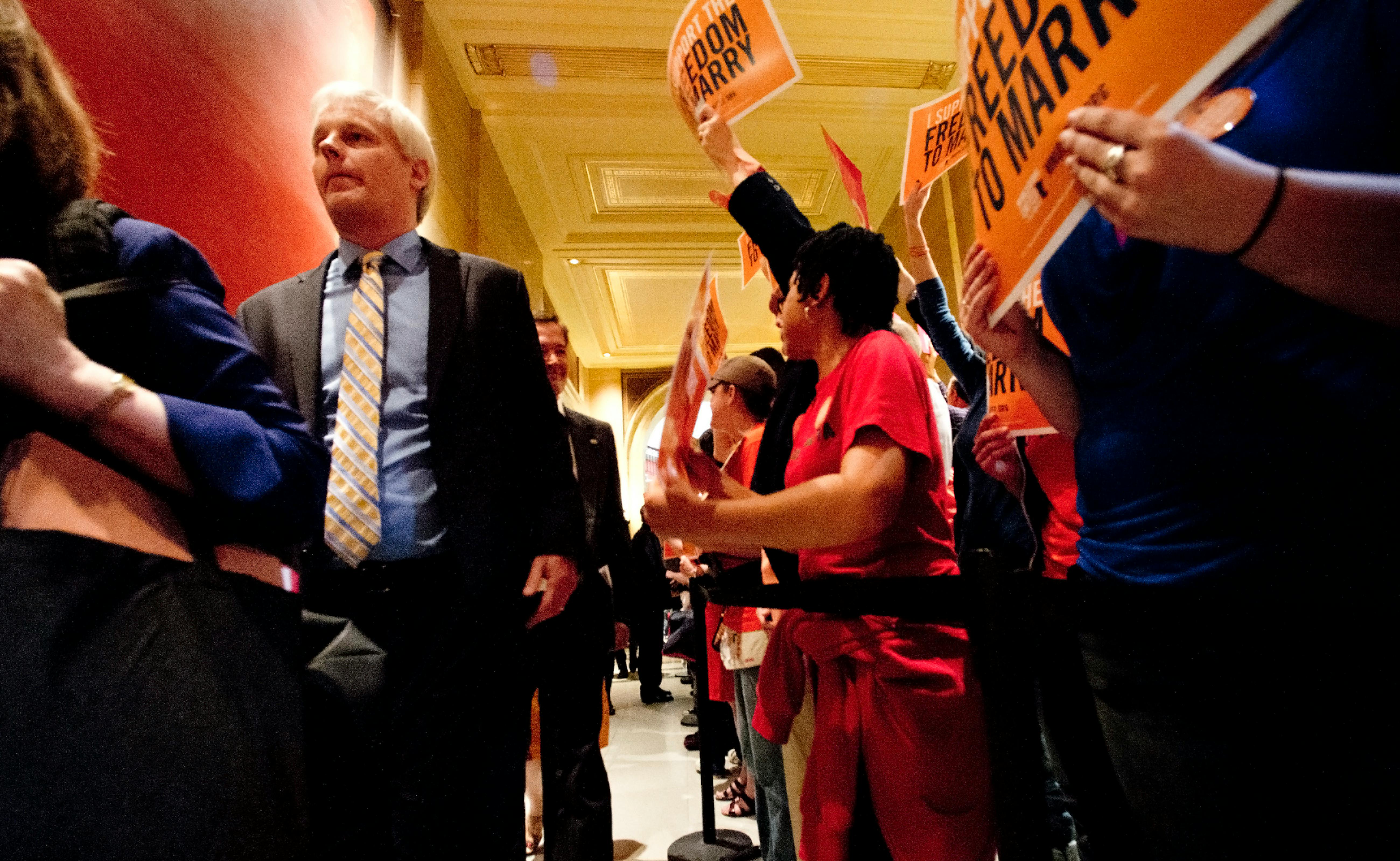
Those materialized shortly before the House vote in an amendment offered by Republican Rep. David FitzSimmons. It was a simple change that added the word "civil'' before marriage, which ensured the proposal wouldn't encroach on the religious freedoms of those individuals and institutions that are opposed.
"They took heat for bringing us on board, but that proved to be the right thing to do," Garofalo said. "We've been able to avoid some of the more contentious polarizing debates on this issue that have occurred in other states."
That change determined his yes vote.
Historic votes
House leaders had spent months in extensive discussions with members about the vote, but on May 9 they left it up to each legislator to decide, said Paul Thissen, then DFL House Speaker.
After an emotional debate on the floor, Thissen was at the podium in the House when the board opened for votes. Only the speaker saw the running tally on a screen at his desk. He watched as the numbers climbed.
"For that period of time, I was really the only one that knew it had passed," he said.
Thissen thought about the crowds in the rotunda who had come dressed in orange to support the bill's passage. He choked up and his voice broke as he read the tally: 75-59. Two Democrats voted no, but four Republicans crossed over to vote yes, including Garofalo.
"I could barely get it out," said Thissen, now a state Supreme Court justice, adding, "That's not my usual Norwegian stoic style."
The pressure then shifted to the Senate, where Democrats felt confident they had enough votes.
"The big question was: Are we going to get any Republicans?" Dibble said. He expected a handful of Republicans to say yes. The vote was scheduled for a couple of days after the House passage. But the Senate vote was pushed to the following week because of a funeral for the father of then-Sen. Carrie Ruud, R-Breezy Point.
Dibble said Republicans came under pressure back in their districts that weekend to vote no, and "all those votes vanished into thin air."
During the debate on May 13, Republican Sen. Dan Hall, a pastor from Burnsville, said he wasn't worried about being on the right side of history. "I am more concerned about being on the right side of eternity."
The bill passed 37-30 with three DFLers voting no and one Republican, former Sen. Branden Petersen of Andover, voting yes.
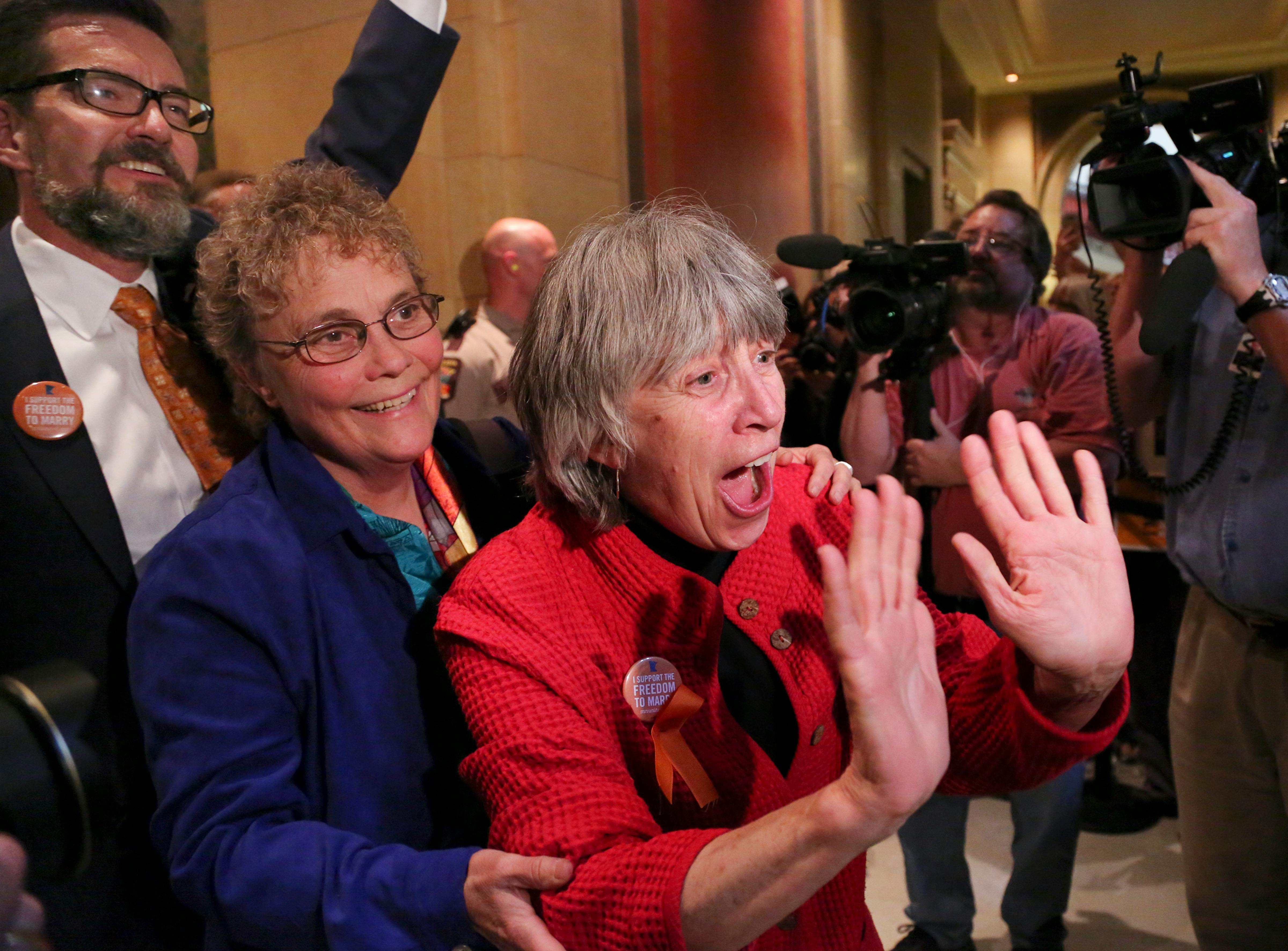
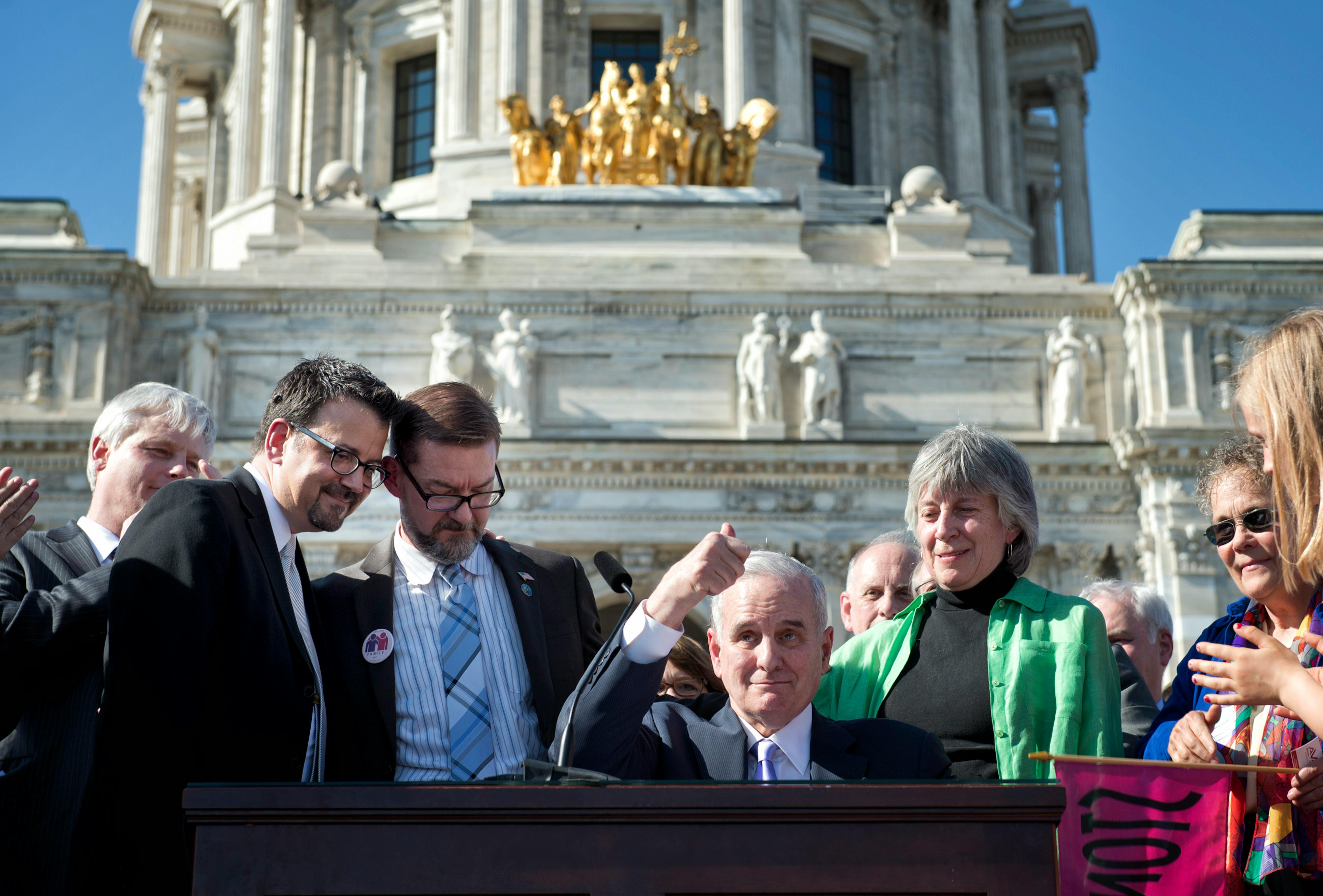
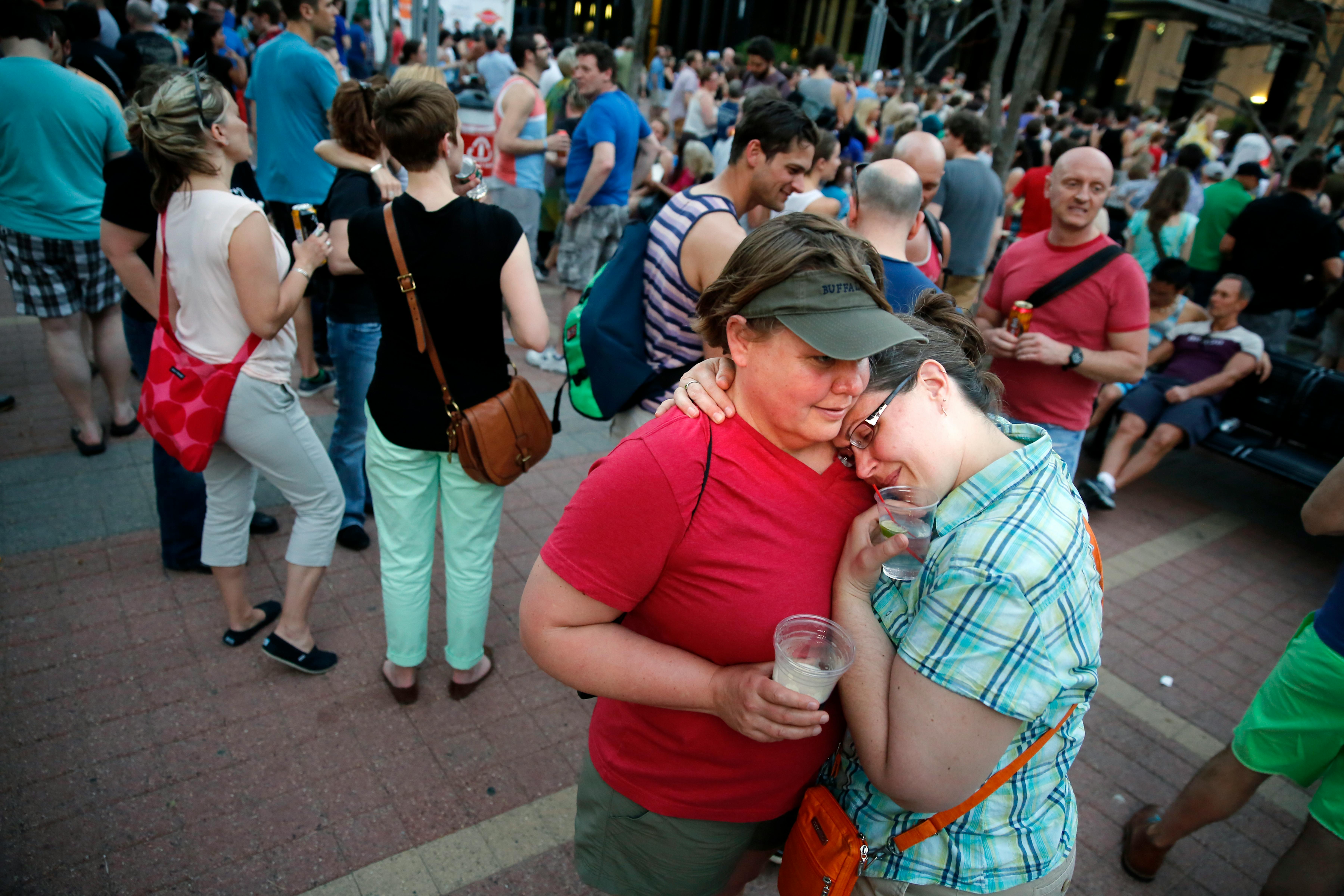
'Love is the law'
Dayton wanted to sign the bill on May 14, right on the heels of the Senate vote, so his staff hauled his heavy wooden desk to the front steps of the Capitol.
The sun was shining, and more than 7,000 people showed up to watch as he jotted down his name. He proclaimed "love is the law," and the Suburbs song of that name became the unofficial anthem of ensuing celebrations.
"It felt like I graduated from high school or college," said Erin Maye Quade, then a political organizer who was watching in the crowd.
She campaigned against the amendment and also had a one-on-one conversation with her legislator, Republican Rep. Tara Mack, to try to persuade her to vote to legalize. Maye Quade talked about her own marriage to her wife and how she wanted it to be recognized in Minnesota.
Mack ultimately voted no, which was part of what prompted Maye Quade to run for a state House seat a few years later. She's now in the state Senate, part of the largest LGBTQ class of legislators in state history. She sponsored a bill recently signed into law to protect transgender people traveling to Minnesota for gender-affirming care, an effort she sees as a continuation of that work.
"It really was the first time for a lot of us who are young that we saw that organizing mattered and it made a difference," she said.
"We were motivated by love."
